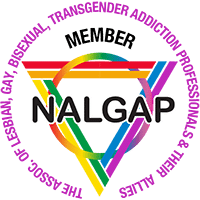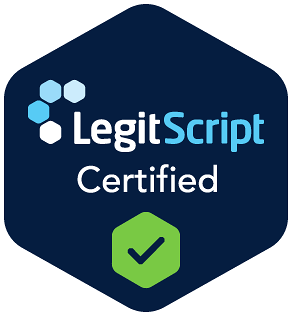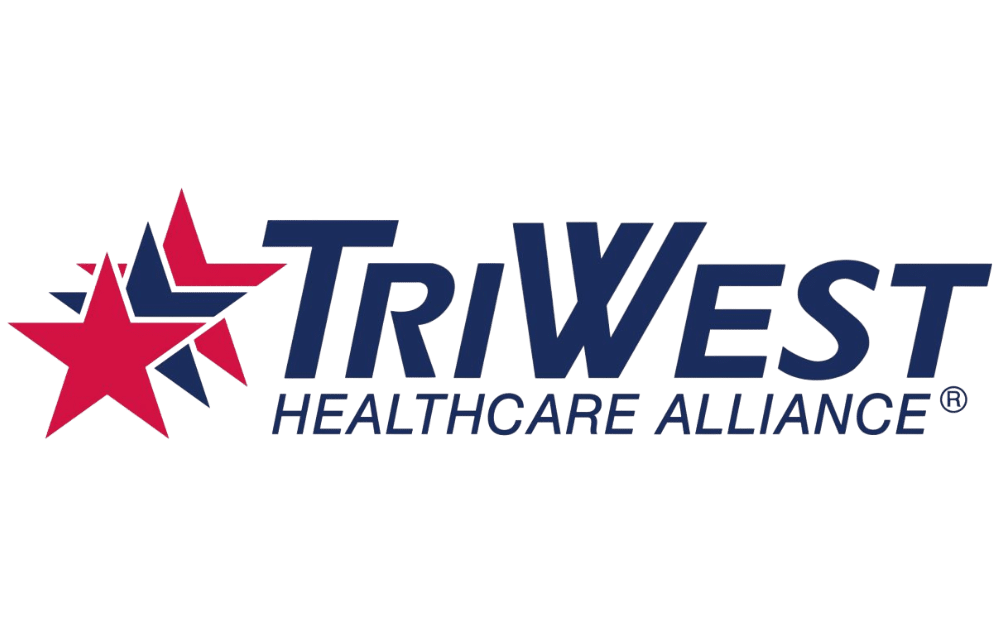Drug rehab denver
Exploring Denver’s Addiction Treatment Landscape
Denver’s addiction treatment landscape is as diverse as its majestic mountain views. With a plethora of rehab centers, the city offers a variety of programs that cater to individuals seeking recovery from substance abuse. These programs range from outpatient care to intensive residential treatments, providing tailored solutions for different levels of addiction severity.
Drug rehab in Denver is not a one-size-fits-all solution. Each center provides unique services that focus on holistic recovery, integrating medical and psychological support to ensure lasting sobriety. The Mile High Recovery Center, for instance, emphasizes personalized treatment plans that cater to the specific needs of each patient, ensuring comprehensive care and support.
Mile High Recovery Center: A Leader in Addiction Care
Since its inception in 2016, Mile High Recovery Center has emerged as a beacon of hope for those struggling with addiction in the Denver area. What began as a single sober living house has now grown into a network of nine homes and an accredited treatment facility that offers a wide range of services. Their commitment to providing same-day admission and round-the-clock support is a testament to their dedication to patient care.
The center’s unique approach combines clinical therapies with experiential modalities, allowing patients to heal and grow in a nurturing environment. From Cognitive Behavioral Therapy to adventure therapy, Mile High Recovery Center ensures that each individual receives a treatment plan that resonates with their personal journey to recovery.
Comprehensive Treatment Options at Mile High
Mile High Recovery Center offers an impressive array of treatment programs, catering to varying needs and stages of recovery. These include residential treatment, partial hospitalization, intensive outpatient programs, and medication-assisted treatment options such as Suboxone and Vivitrol. This all-encompassing approach ensures that each patient receives the right level of care at the right time.
The continuum of care extends beyond traditional therapies, incorporating art, music, and nutrition education to promote overall well-being. Equine-assisted therapy and adventure therapy provide unique opportunities for individuals to connect with their surroundings, fostering a sense of belonging and purpose during the recovery process.
Addressing Diverse Needs in the Community
Mile High Recovery Center’s dedication to inclusivity is evident in their specialized programs for diverse populations. They offer tailored treatment options for adolescents, LGBTQ individuals, and military beneficiaries through Tricare. This commitment to diversity ensures that every individual feels welcome and supported in their journey to recovery.
Insurance barriers are minimized, with the center accepting coverage from major carriers like Aetna, Cigna, and Blue Cross Blue Shield. In-network reimbursement facilitates access to quality care, reducing the financial burden on patients and their families.
Personalized Treatment Model for Lasting Recovery
The centerpiece of Mile High Recovery Center’s philosophy is their personalized treatment model, which focuses on the unique needs of each patient. This multi-phase approach integrates medical management with group work and experiential therapies, ensuring a comprehensive and holistic treatment experience.
Patients benefit from the expertise of clinicians and staff who have lived recovery experience, creating a supportive and understanding environment. The active alumni community further promotes long-term success, providing mentorship and guidance even after formal treatment ends.
Overcoming Barriers to Treatment Access
Access to quality drug rehab in Denver is a critical concern, and Mile High Recovery Center addresses this challenge head-on. By streamlining transitions of care through partnerships with local healthcare providers and insurers, the center ensures that patients receive continuous support throughout their recovery journey.
The integrated housing-to-treatment pipeline further enhances access, providing stable living arrangements that support sobriety and well-being. This holistic approach acknowledges the importance of addressing housing needs alongside addiction treatment for a more complete recovery experience.
Integrating Mental Health Support
Substance use disorders often coexist with mental health issues, requiring an integrated approach to treatment. Mile High Recovery Center excels in providing dual-diagnosis services, addressing co-occurring conditions such as anxiety, PTSD, bipolar disorder, and schizoaffective disorders.
This comprehensive care model ensures that mental health is not merely an afterthought but a central component of the recovery process. By treating both substance use and mental health disorders simultaneously, patients can achieve more sustainable recovery outcomes.
Leveraging Environment for Therapeutic Activities
Located in the heart of Denver, Mile High Recovery Center takes full advantage of the city’s urban and natural surroundings. Therapeutic activities extend beyond the confines of traditional treatment settings, incorporating outdoor and community-based experiences that enrich the healing process.
This connection to the environment fosters a sense of freedom and exploration, encouraging individuals to rediscover their passions and interests. It also reinforces the center’s emphasis on community-based long-term recovery and reintegration into society.
Building a Supportive Alumni Community
The journey to recovery does not end with formal treatment, and Mile High Recovery Center recognizes the importance of ongoing support. Their active alumni community plays a vital role in maintaining long-term sobriety, offering peer support and mentorship to those navigating post-treatment life.
Regular alumni events and support groups create a sense of camaraderie and accountability, empowering individuals to stay committed to their recovery goals. This continued support system helps reinforce the skills and coping mechanisms developed during treatment, enhancing the likelihood of sustained success.
Industry Recognition and Accreditation
Mile High Recovery Center’s commitment to excellence is reflected in their industry recognition and accreditation. Holding certifications from the Joint Commission and NALGAP, the center adheres to the highest standards of care, ensuring patients receive top-quality treatment.
LegitScript verification further attests to the center’s integrity and professionalism, providing reassurance to patients and their families. This dedication to quality is a cornerstone of their reputation as a leading provider of drug rehab in Denver, consistently delivering transformative care.
Understanding Drug Rehab Options in Denver
What distinguishes the drug rehabilitation services offered in Denver from those in other cities?
Denver’s rehab centers offer a unique blend of urban access and natural surroundings, providing treatment settings that are both therapeutic and stimulating. This diversity allows centers to incorporate outdoor activities and adventure therapy, which can be incredibly beneficial for recovery. Additionally, Denver’s status as a healthcare hub means patients have access to cutting-edge treatments and comprehensive care models that may not be available in smaller cities. This combination of natural beauty and urban sophistication creates a healing environment that’s uniquely Denver.
Choosing the Right Treatment Program
How can someone determine the most suitable treatment program for their needs in Denver?
Choosing the right program often begins with a comprehensive assessment that considers the individual’s substance use history, mental health status, and personal preferences. It’s important to find a center that offers a range of programs from residential to outpatient care, ensuring a tailored approach as recovery progresses. Engaging with facilities like ours at Mile High Recovery Center, which provide personalized treatment plans, can be a wise choice. It’s also beneficial to consider the types of therapies offered, such as cognitive behavioral therapy or adventure therapy, and whether these resonate with the individual’s needs and interests.
Addressing Misconceptions About Rehab
What are common misconceptions about drug rehabilitation that need to be clarified?
A prevalent misconception is that residential rehab is the only effective treatment. In reality, the effectiveness of treatment is highly individual and depends on the alignment of the treatment type with personal needs. Another myth is that treatment is a cure-all; however, recovery is a lifelong process that involves ongoing support and commitment. Some people also believe that rehab is only for severe cases, but early intervention with outpatient programs can often prevent further addiction development. Our center focuses on a continuum of care, supporting individuals at every stage of their journey.
Integrating Mental Health Support in Rehab
Why is it important to integrate mental health support with addiction treatment?
Substance use disorders frequently coexist with mental health conditions, and treating both simultaneously results in better recovery outcomes. An integrated approach ensures that issues like anxiety or PTSD are addressed alongside addiction, providing a more holistic healing process. At Mile High, we emphasize dual-diagnosis treatment to meet these intertwined needs, which not only supports sobriety but also empowers individuals with tools to manage their mental health proactively. This integration can significantly enhance the durability of recovery efforts.
The Role of Community in Rehabilitation
How does community support influence the success of rehab programs?
Community support can be a transformative element in the recovery process. It provides a sense of belonging and accountability, which can be crucial for sustaining sobriety. At our center, we foster this through an active alumni network that offers ongoing mentorship and social opportunities, helping individuals stay connected and motivated after formal treatment. This sense of community not only strengthens recovery efforts but also helps individuals to reintegrate into society with a robust support system. Imagining a community event where shared experiences lead to mutual encouragement can really illustrate the power of this connection.
Addressing Challenges in Accessing Rehab
What are some barriers people face when seeking drug rehab treatment in Denver and how can they be overcome?
Common barriers include financial constraints, stigma, and logistical issues such as transportation. Overcoming these involves a multipronged approach. For instance, at our center, we minimize insurance barriers by accepting major carriers and offering in-network reimbursement to reduce financial strain. We also work on education and outreach to combat stigma, emphasizing recovery as a positive life choice. Addressing logistical challenges might involve providing transportation options or coordinating with local providers to streamline care transitions, making treatment more accessible.
Exploring Different Therapy Methods
What are the benefits of incorporating experiential therapies in drug rehab?
Experiential therapies, such as art therapy, equine-assisted therapy, and adventure therapy, offer creative ways to process emotions and experiences related to addiction. They engage individuals in activities that can reveal insights not always accessible through traditional talk therapy alone. For many, these therapies can unlock personal growth and foster healing by allowing expression in non-verbal ways. At Mile High, we find that these methods help clients build confidence, improve emotional regulation, and discover new interests or passions, which can be pivotal in maintaining long-term recovery.
Importance of Personalized Treatment Plans
Why is a personalized treatment plan crucial for effective rehabilitation?
Each individual’s addiction and circumstances are unique, requiring a tailored approach to treatment for the best outcomes. Personalized plans consider not only the substance involved but also any co-occurring mental health issues, personal strengths, and life goals. This customization ensures that therapy resonates deeply with the individual, increasing engagement and effectiveness. At Mile High, we create multi-phase plans that adapt as recovery progresses, integrating various therapies to align with an individual’s evolving needs, ultimately supporting a sustainable path to recovery.
Resources
- Substance Abuse and Mental Health Services Administration (SAMHSA) – SAMHSA is the leading national organization focused on improving mental health and substance abuse treatment services.
- National Institute on Drug Abuse (NIDA) – NIDA is a government organization dedicated to advancing addiction science and addressing the public health crisis of drug abuse.
- American Psychiatric Association (APA) – APA provides resources and information on mental health, including addiction treatment and recovery.
- National Alliance on Mental Illness (NAMI) – NAMI offers support, education, and advocacy for individuals and families affected by mental health conditions, including addiction.
- Centers for Disease Control and Prevention (CDC) – The CDC provides data and resources on substance abuse, mental health, and other public health issues.
















